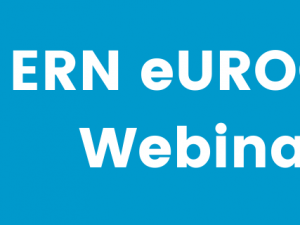ERN eUROGEN’s two applicants successfully received funding for an ERN fellowship exchange in the first ‘EJP RD ERN RD Research Mobility Fellowship Call’, receiving excellent feedback from the panel.
Simone Engmann Hildorf:
In autumn 2020, Simone will visit Karolinska University Hospital to work on the joint research project “Tissue expansion for rare urogenital malformation” under the EJP RD programme. The aim of the project is to develop methods for in vivo and in vitro tissue expansion for surgical treatment of severe tissue defects.
Simone graduated as a medical doctor from the University of Copenhagen in January 2019. Since then she has been enrolled as a PhD fellow at Rigshospitalet carrying out the project “Optimizing treatment of cryptorchidism by testicular tissue cryopreservation including identification of different germ cells”. Her core research is focused towards a better understanding of the postnatal germ cell development using digital pathology and to investigate the need for supplementary treatment for boys with cryptorchidism.
In collaboration with the Laboratory of Reproductive Biology in Copenhagen, Simone and colleagues are exploring the possibility for in vitro germ cell expansion for later fertility preservation prospects. They have been able to cultivate human testis colonies through five culture passages to increase the number of germ cells by a factor of more than 5,000.
Simone looks forward to completing this ERN fellowship exchange, which is beneficial not only to her educational and laboratory training but also in promoting joint studies between ERNs on tissue expansion methods.
Alison Downey:
Alison is a final year resident working at Sheffield Teaching Hospitals NHS Foundation Trust and will visit three other ERN eUROGEN member centres (Universitätsklinikum Hamburg-Eppendorf, UZ Leuven and Radboudumc) to work on a project entitled: “Identifying knowledge gaps and improving clinical research methodologies on a rare condition affecting the female urogenital tract: a multicentre data collection on female urethral diverticulum across four highly specialised healthcare providers in ERN eUROGEN”.
This will be a retrospective review of the clinical records of patients presenting with urethral diverticulum in order to identify factors in the disease that impact on outcomes of treatment and help to define a best practice for management. In addition, the data and any challenges will help shape the forthcoming ERN eUROGEN data registry. Female urethral diverticulae are rare however the impact of the condition on the quality of life of the patient is significant; in addition, many of these patients have a delayed diagnosis due to the non-specific symptoms.
Alison says: “I am really delighted to have been granted funding and am looking forward to my ERN fellowship exchange. As well as the invaluable research experience I will gain from the project itself I will benefit greatly from the clinical expertise I will be exposed to in my host institutions. I am also excited by the prospect of travelling to Belgium, Germany and the Netherlands; experiencing the fantastic culture and different local speciality foods! It will be a fabulous experience and I am grateful to be afforded this fantastic opportunity!”




